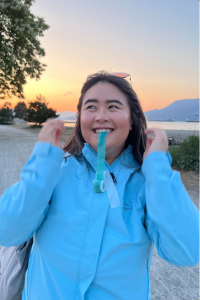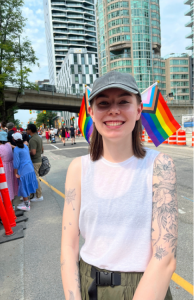Meet MAKING CONNECTIONS’ core development team! This small but mighty group of five are the people behind the development of a new undergraduate course ‘Introduction to Natural History Museums and Biodiversity Science’.
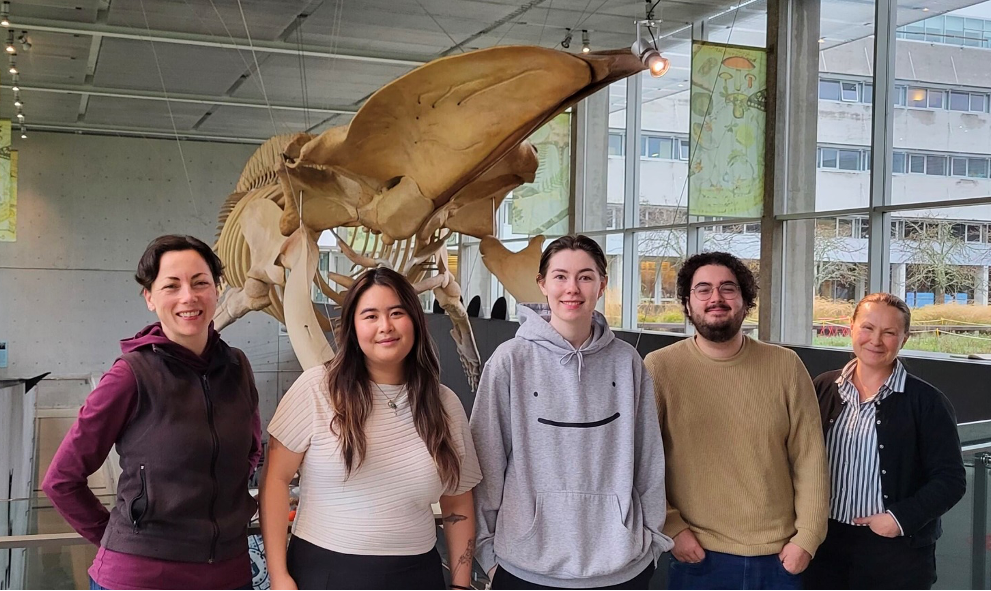
Pictured (left to right): Dr. Bridgette Clarkston, Mailyn Tran, Riley Plunkett, Fabio Peres Schneider, Jackie Chambers. Photo: Deepti Arya
The specimens in natural history collections such as the Beaty Biodiversity Museum (BBM) enrich our understanding of biological diversity through the physical, genetic, and ecological information they contain. As sources of scientific information for the public, museums also play a pivotal role in connecting the community to science. Museum professionals are skilled in teaching pedagogy, communicating contemporary research through hands-on learning, and creating accessible and engaging physical and digital exhibits.
Future biodiversity researchers require hands-on experience with collections-based research in order to be industry-ready. They also need to be effective science communicators engaged in equity and anticolonial initiatives in order to contribute to the communities they serve. An undergraduate course, rooted in collections-based research and modern museum practices will prepare emerging scientists to do this work.
Using this rationale as our guide, the MAKING CONNECTIONS project is dedicated to the development of this new course. Each of our core team members brings a unique set of diverse skills and experiences that have enriched the course’s development immensely. At the heart of our team’s shared values is a desire to develop a course that centers on diverse perspectives, anticolonial practices, and accessibility.
OUR CO-LEADS
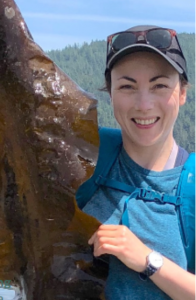 BRIDGETTE CLARKSTON (she/her)
BRIDGETTE CLARKSTON (she/her)
Associate Professor of Teaching, UBC Botany
Bridgette is a seaweed scientist, teaching professor, and a staunch believer that education plays a vital role in making positive change. Bridgette finds the history and practice of preserving biodiversity fascinating and complex and believes that engaging with and learning about biological organisms from the past holds tremendous learning opportunities for students. As an experienced educator who has previously integrated natural museum collections into her classroom, Bridgette guides the team in our pedagogical thinking and curriculum design process. She will be the lead instructor for the new course and looks forward to the impact its teachings will have on the next generation of natural history museum and biodiversity science professionals.
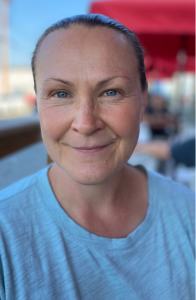 JACKIE CHAMBERS (she/her)
JACKIE CHAMBERS (she/her)
Teaching and Learning Manager, Beaty Biodiversity Museum
Jackie is an ethnobotanist turned museum educator and has led the Teaching and Learning team at the Beaty Biodiversity Museum for the past 11 years. As one of our co-leads, Jackie brings an immense amount of knowledge, and experience with and connection to the Beaty Biodiversity Museum’s collections, personnel, community partners, and education programs. Jackie is excited for the course to be an opportunity for UBC students to connect with the over 2 million specimens and team of museum professionals who are working towards a world where biodiversity is better understood, valued, and protected.
OUR STUDENT CO-DEVELOPERS
The new undergraduate course aims to support the growth and development of the next generation of Natural History Museum workers and Biodiversity professionals, thus the importance of an intergenerational approach to development has always been a priority of the MAKING CONNECTIONS project.
Our three student co-developers joined the MAKING CONNECTIONS project in May 2023 and come from a variety of backgrounds and stages of their academic careers at UBC. Each of them enriches the course’s development through their unique set of experiences, skills, and passions — many of which you can read more about below!
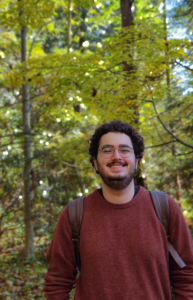 FABIO PERES SCHNEIDER (he/him)
FABIO PERES SCHNEIDER (he/him)
Partnerships Assistant, MAKING CONNECTIONS
Fabio is in the final year of his undergraduate degree in Philosophy at UBC and has been involved with natural history museums throughout his time at UBC. Fabio is excited to integrate decolonial theory, critical Indigenous studies, and the philosophy of science into the natural sciences through the course. As our Partnerships Assistant, Fabio has led our community outreach efforts and the development of resources on anti-colonial, decolonial, and Indigenizing materials for our course.
MAILYN TRAN (she/her)
Project Assistant, MAKING CONNECTIONS
Mailyn is studying oceanography, biology, and climate studies at UBC and is actively involved in ocean-climate research and activism. Mailyn is excited about the potential to educate the next generation of biodiversity professionals on not only the importance and value of Indigenizing their work but also on strategies for how to put such work into practice. She believes long-term environmental monitoring is vital to understanding biological changes in the face of the climate emergency and is excited to highlight the value of the data held in natural history collections and the many museum professionals who manage them for such work through the new course. As our Project Assistant, Mailyn manages the project’s many moving parts, public communication, and event logistics.
RILEY PLUNKETT (he/him)
Evaluations Assistant, MAKING CONNECTIONS
As an undergraduate at UBC, Riley is specializing in oceanography and biology and has focused on science communication and accessibility in his studies. He is passionate about integrating elements of accessibility and inclusivity into the course framework from the beginning to make this course approachable for all students. Riley believes that involving diverse perspectives and centering students in the development process will lead to a more well-rounded and accessible course for everyone, and allow students to appreciate a diverse set of perspectives. Riley’s role as the Project Evaluation Assistant includes designing surveys and feedback stations, data analysis, and ensuring the outlined goals of the project are being met.

